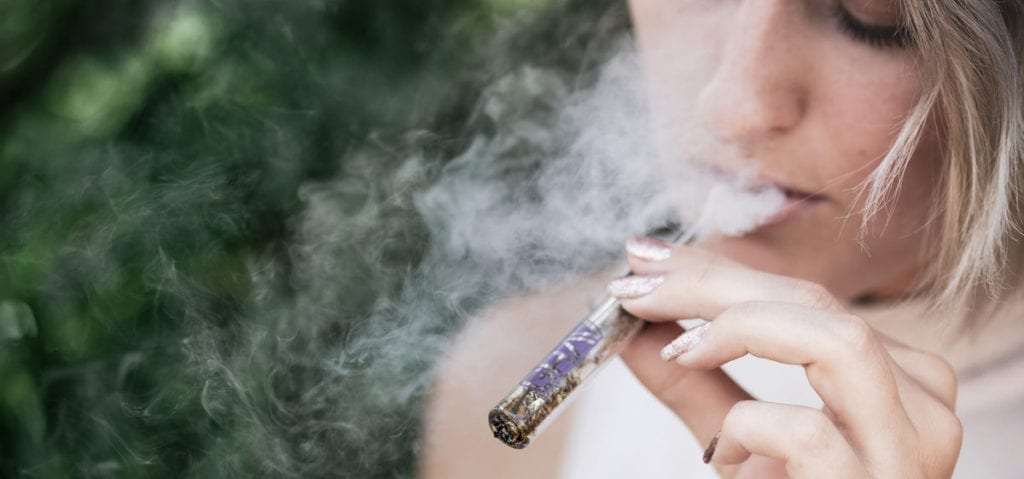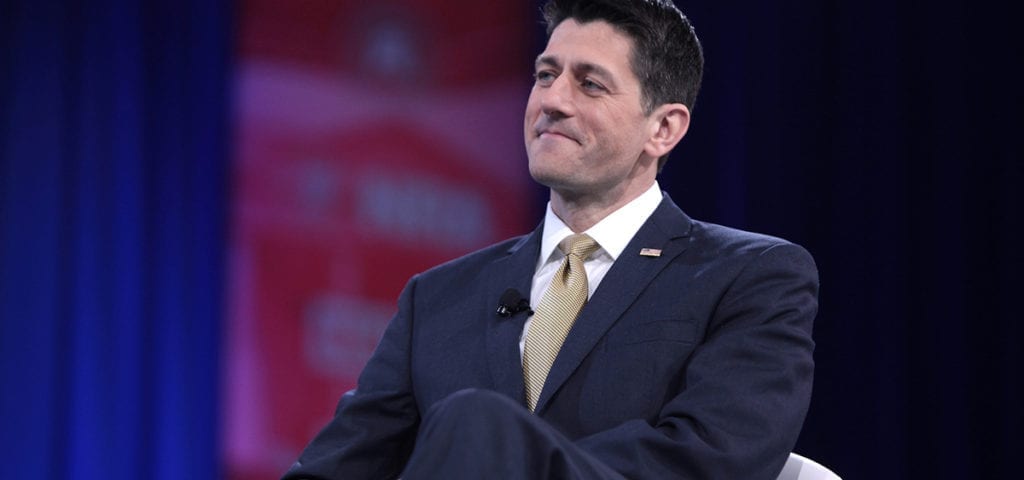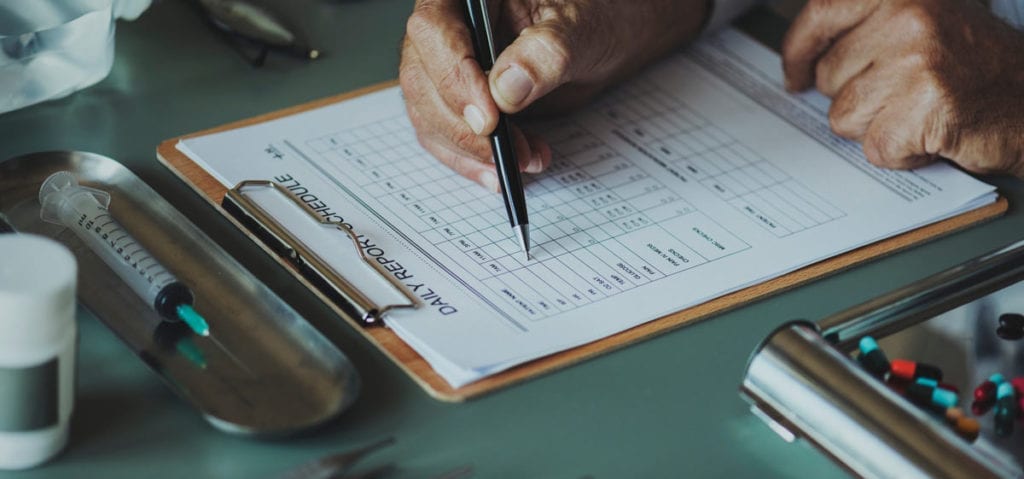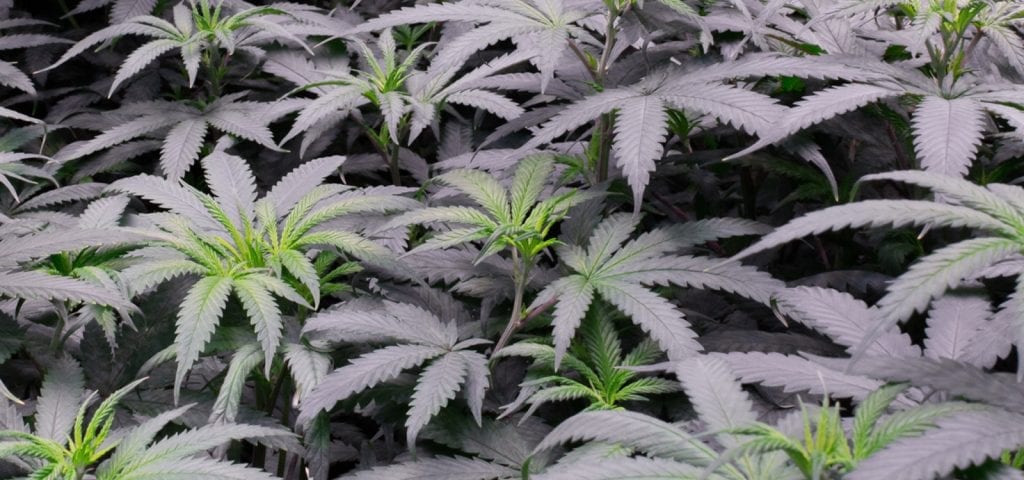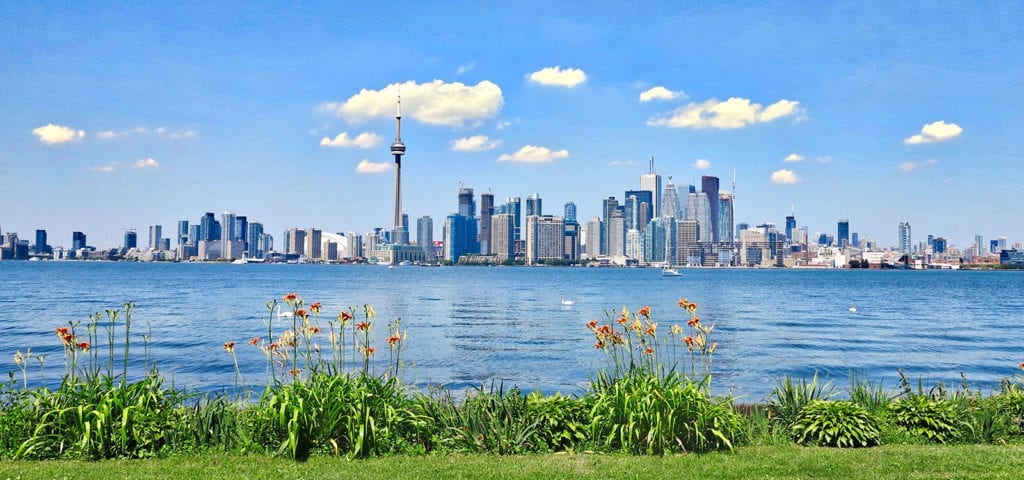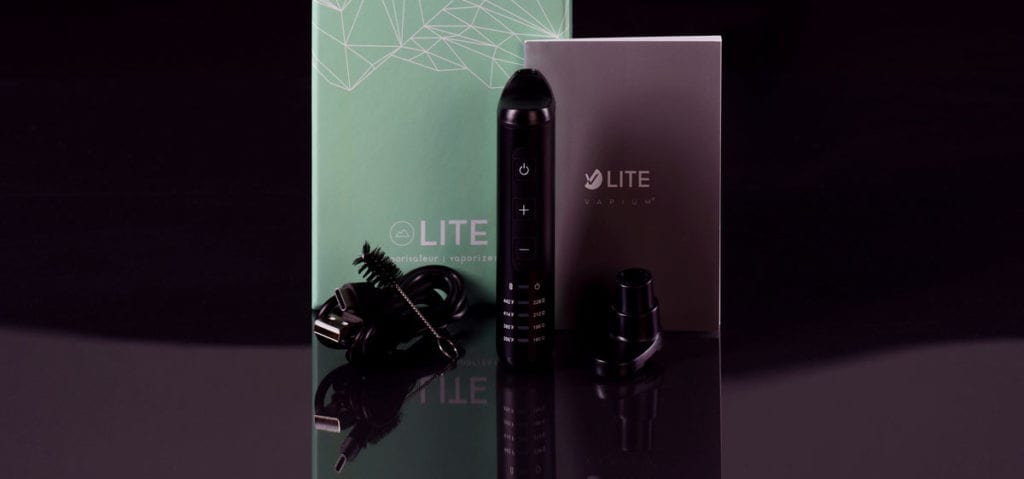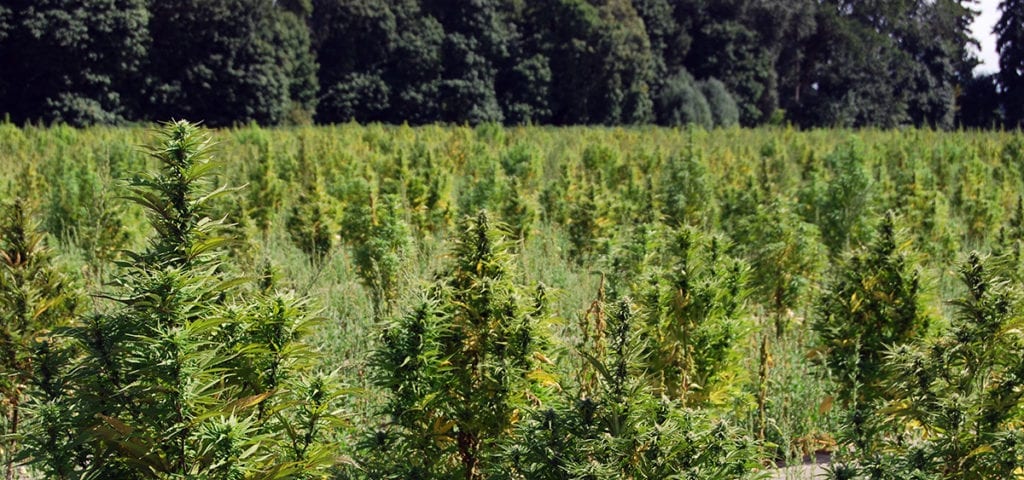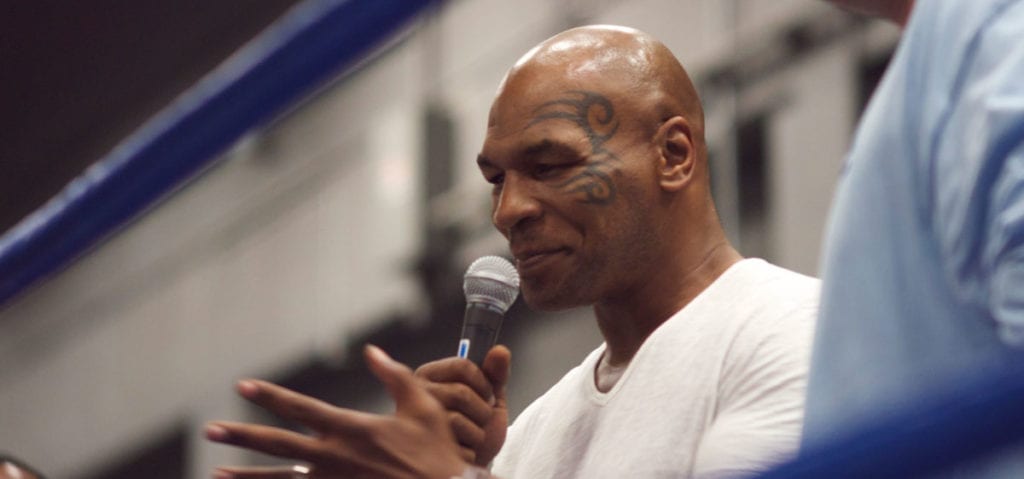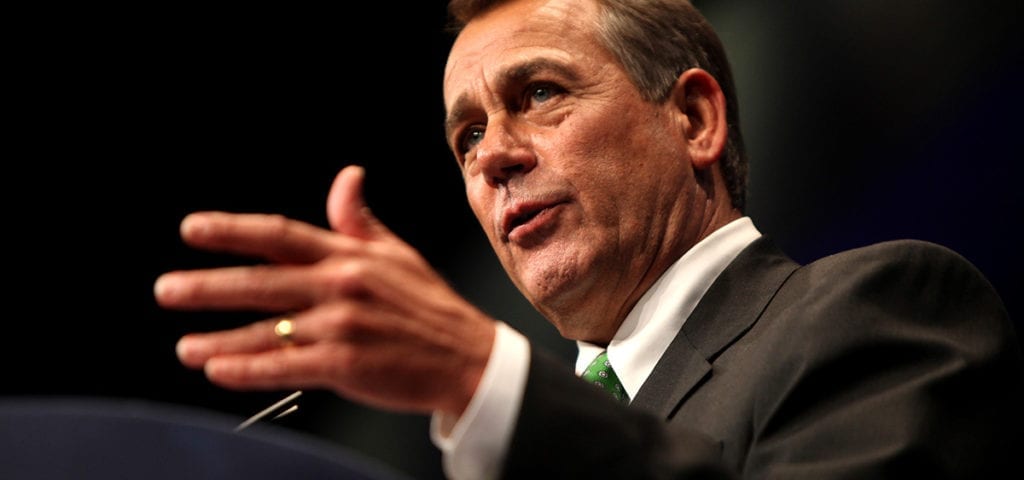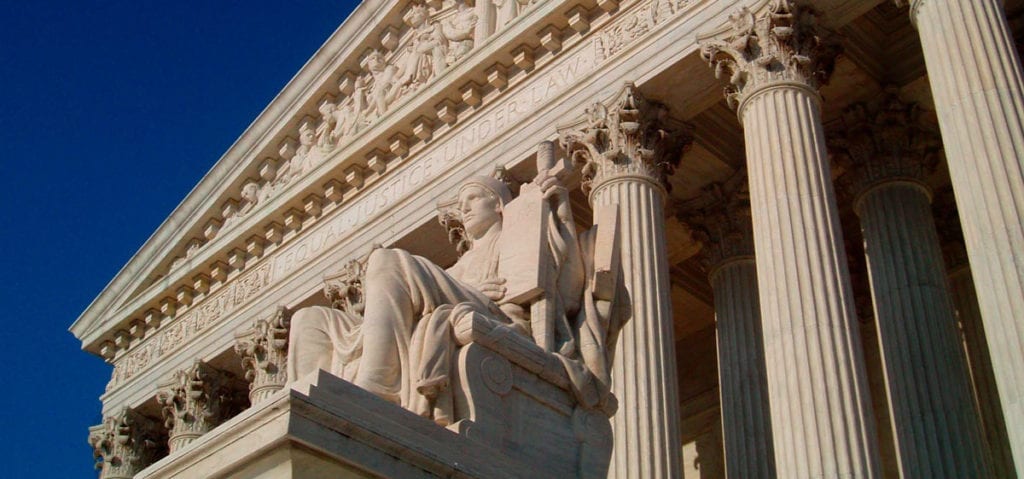Korey Rowe is the documentary filmmaker behind Mile Marker, a powerful investigative film that follows Korey on a journey across the continental U.S., stopping for interviews with veterans suffering from PTSD along the way.
Korey joined our host TG Branfalt before Mile Marker’s release to talk about making the film and the experience of military combat veterans in the United States. In this interview, Korey discusses how veterans would open up to him about their experiences returning home, how medical cannabis has helped him and countless other veterans maintain their mental health, and more.
Tune in via the player below, or scroll down to read a full transcript of this podcast interview!
Listen to the podcast:
Read the transcript:
This episode of the Ganjapreneur podcast is sponsored by Cova, the leading compliant point of sales suite for cannabis retailers and delivery services. Cova was developed to address the needs of retail businesses in California, Colorado, Washington, and Canada. Cova integrates the state traceability systems, such as Metrc and Leaf, as well as a wide variety of other business tools, such as Baker, SpringBig, and I Heart Jane. Cova also has built-in compliance features, such as looping alerts when purchase limit is exceeded, automated sales tax, and instant age verification with ID scanning. Discover the next evolution of cannabis retail software today at covasoftware.com.
TG Branfalt: Hey, there. I’m your host, TG Branfalt, and you are listening to the Ganjapreneur.com podcast, where we try to bring you actionable information and normalize cannabis through the stories of ganjapreneurs, activists, and industry stakeholders. Today, I’m joined by Korey Rowe. He’s a documentary filmmaker. The film is called Mile Marker, which follows Rowe, a two-tour veteran of the Iraq and Afghanistan wars, as he travels over 7,000 miles across the U.S. to interview other veterans who are currently struggling with PTSD. This is a super important topic. There’s actually been some federal movement on this issue, but before we sort of get into the details on the film and the federal legislation, Korey, how you doing, man?
Korey Rowe: I’m great, man. I really appreciate you having me on today to talk about this issue. It’s very important to me as a veteran that other people in America hear about it. So few people serve in the military that they don’t really have a lot of times a personal connection, perhaps, to somebody who directly served in combat, and so I hope to show the world that these people are out there, and they’re struggling, and they need our attention and our help, and so I really appreciate you having me on today.
TG Branfalt: No, absolutely. Before we sort of get into all these nuances and details, tell me about yourself, man. What’s your background, and how’d you end up making a documentary? Just tell me the story.
Korey Rowe: Sure. Actually, it’s interesting, my whole life kind of can be boiled down to a dime bag of schwag. When I was 16 in upstate New York, I got arrested the third time I ever tried to buy weed, and it was a dime bag of schwag. Because of that, I was kicked out of high school. I was labeled a stoner, and I eventually joined the military at age 18 with only a GED, because I had no other options in my life. That was two weeks before 9/11, and I actually said to my best friend, I was like, “Don’t worry about it. There’s not going to be a war,” and so I joined the United States Army and was shipped to the 101st. 10 days into my active duty deployment, my tour, I was shipped to Afghanistan, Kandahar, in the initial invasion after the 9/11 attacks.
I served there and then proceeded to do a second tour into the invasion of Iraq, so I was with the one unit that invaded both Afghanistan and Iraq. I had quite an experience. I saw a lot of things, a lot of things happened, and to me and my unit, and we were unique because we were the first ones in. I got back, and after my second tour, I got out, I went into doing things post-military life, and it took a few years before my PTSD really kicked in. When it did, it kicked in hard. I got in all kinds of trouble, legal problems, drug addiction. You name it, I went through it. Finally, after I went through all of that, I knew that I had to make a change. For me, it was a geographical change. I had to get out of the Northeast.
I had to move to a place where I had free and legal access to cannabis, and that was California, so I set a date and a time, and I said, “If I don’t have a job by January 2nd at 7:00 AM, I’m going to get my Jeep, I’m going to drive to California. I’m going to drag my motorcycle out there and I sell it for my first month’s rent.” That’s exactly what I did. I started from the ground up, and I just, I have these stories inside of me that are just burning to get out, and one of them is this story of my unit and our tours into the Middle East. I actually, during my PTSD episodes, tried to make this film originally 10 years ago.
I filmed an interview with one of my friends who got in a lot of trouble as well for weapons, and I wanted to show the world that we were struggling, and we didn’t know what to do. 10 years later, I was still trying to make that story, and after I finally got my life on track out here in California because I had that access to cannabis, I finally got on the path towards being able to create this project, and so I, again, set a time and a date. I had some money, and I was like, “I’m going to drive across the country, and I’m just going to check in on my battle buddies. I’m going to go from California to Vermont on the southern route, and I’m going to turn around and drive back across the country on the northern route. I’m going to stop and see as many guys as I can.” That’s exactly what I did, and I filmed the interviews, and I asked all the guys very personal, tough questions that they typically wouldn’t answer to a regular interviewer or newsperson.
This is their fellow battle buddy who was there with them in combat discussing things that we both remember very well, and it gives you a very dramatic insight into the lives of veterans, both in combat and post-military life. I did all that, and I went from the Southwest, and as you travel across the country, you definitely get a different taste as state laws change and as people’s options change, whether they were honorably discharged or dishonorably discharged. You get a really good picture on life in America for veterans today, and that’s the point of this project, Mile Marker, is to do exactly that, is just to show people that life after military goes on, and in the United States, as I said, less than 1% serve in active duty military and far less in combat, and so it’s a very unique story that not a lot of people are privy to.
TG Branfalt: Tell me, you said that you, obviously, were using a little bit of cannabis when you were a teenager, so how did you end up back to cannabis? When did you realize that that was something to help you deal with the PTSD later?
Korey Rowe: Well, I’ll speak about it in two parts, because I originally used cannabis, and the first time I ever took a proper inhale, I knew it was for me. I have bipolar disorder as well. It’s something I struggled with as a teenager, very … It was very difficult for me, and cannabis, I don’t know why, I didn’t know back then why I felt like I needed it, but it helped, and that was why I always kind of kept going back to it. After the military, when you’re definitely not allowed to use cannabis, after the military and not being under their radar anymore, I was able to use it, and it definitely helped me. I’ve always known that it was something that helps, but then I got into real drugs.
Then I got into heroin addiction. Then I got into alcoholism, and I went through that whole process because I wanted substances to make me feel better, but at the end of the day, when I was really at rock bottom, I realized that no matter how much dope you shoot, there’s nothing better than smoking a jay, and that’s just the thing that makes me feel right in the head. I managed to get clean and sober and move out to California, and I still remember, I took a picture. I still have the picture of the first time I bought cannabis in LA. I had all these great little bags and medical symbols, and it was legal, and they had all the THC count on it. It was just like, “This is where I’m supposed to be.”
That’s the first day of my life being back on track, and it’s, so going back, from the people that know me, they can see the transition from when I got free and legal access to cannabis and how much my life has turned in a positive trajectory because of that. I don’t need to go out to the bars. I don’t need to go out and find drugs to make myself feel better. I have legal access to medicine, which has been tried and tested, that works for people with both bipolar disorder and PTSD, and so since that day, I’ve been able to just continuously move forward and just work more and more towards being a better filmmaker and making bigger projects, and that’s what I’ve been trying to do, and California has given me that ability.
TG Branfalt: There’s obviously an opioid epidemic in the United States, and vets are often cited as one of the populations hit hardest by the overprescription of opioids. Is that what led you to heroin?
Korey Rowe: No. No. For me, I was just looking to get over the demons in my head. I didn’t … I used to ride a motorcycle, and when I would ride that motorcycle, on my left shoulder would be all the brothers I left behind, and on my right shoulder would be all the innocent people that died because of us, and that was an image that I carried with me at all times. If you can imagine, it’s pretty heavy, so I would use substances to try to eradicate those negative feelings, and when you learn about addiction, you realize that this just makes it so much worse. However, within my film, you definitely meet a bunch of guys that were overprescribed opiate medication that fell into heroin addiction because of that.
One of the main stories that goes through is with a Special Forces, Special Operations guy named Chris Taylor, who lives down in Arizona. He hurt his back overseas, and he was prescribed opiates, came back to the United States, and was hooked on the opiates, got discharged, wasn’t able to get the access to the pharmaceuticals that he wanted and ended up buying some on the street, got arrested for it, and was charged with five different felonies for that. Since then, he’s been able to rebound successfully, but it’s a very common story that you hear that veterans are prescribed opiates or barbiturates to deal with whether it be mental or physical pain, and those manifest into addiction, which onions into a much larger problem.
Then when you look at the microcosms of where these guys are trying to live, such as the Phoenix VA, where they’re being put on secret waiting lists and being made to wait up to nine months to get treatment of any kind, it’s not a big surprise that a lot of us are dying very quickly both by our own hand and by overdoses and addiction and just not winning the battle for PTSD.
TG Branfalt: When you took to the road to link up with your former battle buddies, as you put it, what was their reaction to you showing up and what you are now doing, and the message that you’re trying to sort of illuminate?
Korey Rowe: Sure. Vets are, we’re a prickly bunch, and when you tell guys what you want to do, and you want to talk to them, and you want to interview them about PTSD, you have a lot of guys that immediately throw up the fence, and they’re like, “You know what? I’m not interested in that. I don’t want to go back down that road.” You hear a lot of times, “I don’t want anything from the VA. I don’t want treatment,” and so a lot of guys are very distant. That’s actually a very good indicator that someone’s struggling with PTSD, and so that’s very much why I try to push these guys to let me come and talk to them.
A lot of the guys in the film were hesitant at first, and even through the editing process, they weren’t 100% sure of what they got themselves involved with, but as they’ve now seen the film, and they’ve seen the actions that we’re out taking, we were on Hollywood Boulevard on Saturday with a 15-foot sign just raising awareness for the fact that 22 veterans end their own lives every day, and they see the passion that I’ve put into this project, they 100% support it.
Furthermore, what’s been really great about this whole experience is that I’ve helped other veterans find their voice, because so many of us felt for so long, like it doesn’t matter what we say, and we’re just a number, and who cares about my problems, but the reality is, when we got this group of vets together on Saturday and stood on Hollywood Boulevard with this huge sign, all of us in uniform, thousands, and thousands, and thousands of onlookers pass by and take our pictures, we raised awareness, and we showed other veterans across the country how easy it is to stand up and make your message heard and do it in a respectful and non-violent way.
Immediately, I got calls from across the country from vets, and organizations, and rallies, and people who want to get involved and who want to do similar actions, and now the guys that are in the film and were questioning at first are out there, and they’re sharing this information on social media, and they’re talking to other people, and they’re working on, for the first time, pushing their life in a positive direction that may include treatment of several different varieties. That is a success story, in my mind, because the real reason that I set out to make this project in the last year, when I finally got my head around it, was that I just wanted to let other veterans with PTSD know that they weren’t alone, that they were struggling with similar issues that other people are struggling with, and that they should check out this movie because it offers a multitude of suggestions on how they could deal with it in whatever state they live in and which is, it’s fascinating to them.
I’m really excited to get it out there. It’s released tomorrow. We’re doing it exclusively with iTunes through the rest of the month, and then it’ll be available on all different digital outlets, Amazon, Google Play, and all of those and many others, as well as educational market, DVD. It’s going to be, and we’re going to keep pushing it out for years to come and keep pushing this message, because it’s a message collectively that vets support. It’s one of treatment. It’s one of free and legal access to cannabis. It’s one of a reduction of pharmaceuticals. It’s a one of reduction of opiates and barbiturates, and it’s something that a lot of people can stand behind. As you noted, the national opiate heroin epidemic is at a level of crisis it’s never been before, and veterans have some of the best insight on how to deal with that and how to correct it.
Cannabis is definitely helpful for that. I believe that cannabis can help people in their addictive substances, whether it be opiates or alcohol. I think that it can definitely help you reduce and remove those substances from your life if you’re using high-quality, clean, free and legal access to cannabis.
TG Branfalt: When you met up with some of these vets that were struggling with PTSD, and you pitched to them the idea of cannabis as a tool to help them, obviously, it’s not a cure, but it is a tool, what was their reaction? Was there a lot of hesitation? Was it sort of a, “I’ve been thinking about it,” but you sort of pushed them over the edge?
Korey Rowe: Well, you definitely, in this, in Mile Marker, you get a wide variety of opinions, and there’s definitely some guys whose immediate reaction to cannabis is negative, and they don’t want anything to do with it. You’ll hear one guy actually say specifically, “I’m taking all of these other psychoactive drugs, and you want to me to add cannabis on top of that,” an illegal substance in his state, and he said, “No, of course not. I can’t handle that mentally. I can’t handle that legally. That’s not something I can do,” but then guess what? He tried it, and a complete 180-degree reversal on that, and now he uses cannabis every day, and you get to hear this then from other guys who just knew from the start.
They’re like, “I knew that this was going to help me, and I tried it, and it worked, and I’m just, my life is better because of it.” Then you got the guys in the middle that are like, “I’ve heard about it. I’ve heard other guys using it, but I’m still going to take my pharmaceuticals right now, because a doctor prescribed them,” and because they want to follow that traditional medicine route, and so you definitely get a wide variety of opinions, but in the end, you definitely see a larger sway of people who are like, “Oh, okay,” and for me, who lived out here in California, it’s on the tip of every tongue. I’ve done several interviews, and there’s been several articles on this movie, and all of them have been focusing on the cannabis aspect. It’s such a huge, hot topic out here.
Then I did an interview for a paper in New York last week, and they don’t focus on it, because they … It was a byline in the article. It’s like, “Oh, they mentioned cannabis, and some people in Colorado have seen positive effects, but Rowe says it’s not the silver bullet.” It’s not, but it’s definitely something that’s more helpful than opiates. It’s more helpful than barbiturates, and yeah, so you definitely get a lot of different opinions. Also, you also get an opinion from the VA, because I interview the head of the National Center for PTSD, Executive Division, Dr. Paula Schnurr, who basically writes the book on how veterans are treated psychoactively in treatment through the VA system, and we discuss pretty significantly cannabis and its role in treatment. Everybody’s talking about it. Even the VA is starting to open up studies including it. Then you definitely, at the end of the film, we meet Dr. Sue Sisley back in Arizona, who has the first FDA-backed, DEA-backed study for treating veterans with PTSD with whole-plant cannabis.
You get both the veteran point of view, you get the specialist point of view, and then you get the opposite. You get the people who say that it’s, that all of these stories and everything that I’m saying is just anecdotal, and there’s no real science behind it, so you definitely, it’s a good contrast, a debate about cannabis and its positive and negative effects for treating soldiers who have been in combat and exhibit signs of PTSD.
TG Branfalt: You mention the VA. You mentioned some of the issues that they have in Arizona, I believe you said. There’s recent legislation that was pitched federally that would allow the VA to study medical cannabis specifically for PTSD. For the listeners who aren’t familiar with sort of the VA is …. the doctors are not even allowed to even recommend medical cannabis. They are sort of now just allowed to start talking to vets about it. Do you think that this, what’s your take on this small step in potentially, how would it potentially affect the VA and the care that veterans receive right now?
Korey Rowe: I think it’s a little late. I mean, they’re definitely joining the conversation, and that’s a great thing for them to finally be doing. It just takes this critical mass. It takes films being made. It takes articles being written. It takes veterans talking about it, for organizations, especially at the federal level, to kind of start to open their ear to these kind of conversations. You see it time and again with all evolutions in technology. There’s the early adopters and the innovators who understand these things quickly, and then there’s the laggards at the back end who are fighting it the whole way because they want to keep the systems that they have in place. The VA are those laggards. They’re at the back end in innovation, because they don’t have an operational system that they can intake this kind of information, analyze it, and do something with it quickly. It’s an antiquated system that is completely over-inundated with the needs of veterans. At this point, we’re struggling just to get ahead of the VA, who can handle the job properly, let alone start to take on new studies like this.
I’ve said, since I started pushing this movie, that one of the best things we can do for the VA is get as many vets in the upper echelons of the VA as possible, because we know what our organization needs. One of them, specifically, one of the guys in my film, Lawrence Keating, who is actually a Vietnam veteran, is a specialist, a transitions counselor in Long Island, New York, and he just wants to rip the whole VA system down and start new. He doesn’t even want to use the term “VA.” He wants to just start something completely new, because he thinks they’re so out of whack, but at the same time, I don’t think that’s feasible. I think what we really needed to do is take this system that we have and fix it in place. That includes being able to take in these kind of ideas and explore them, because it’s cannabis, but there’s other things out there on the forefront of research that people are finding have great effects for people with PTSD.
One of the organizations that I highlight in the film is an organization called MAPS, and they are on the forefront. They’re a non-profit, and they fund studies that push the boundaries of science and what we’re used to doing with scheduled narcotics and drugs like that so that we can find out if we’ve been hindering ourselves by keeping these things locked up.
What’s really weird about it is, for me to find out through this whole process, is that cannabis is a Schedule I narcotic. What that means is that the federal government has stated that cannabis has no medical value whatsoever. However, heroin, cocaine, and methamphetamine are Schedule II narcotics, which means that they do have some kind of medical benefit. That, right there, shows you how ass-backwards our federal government is and how much we need to drastically change it not just at the VA level, but also at the federal level, plus our agencies.
TG Branfalt: I mean, you mentioned sort of the, for lack of a better term, we’re going to call them shortcomings of the VA. Do you think that, and you mentioned MAPS, which, I mean, MAPS is doing some really great stuff with regards to psychedelics, microdosing of LSD, microdosing of MDMA, all really cool stuff, do you think that the VA should even be doing this research at this point, or would you rather see it more of a private, maybe a private-funded thing maybe given to universities or institutions such as MAPS?
Korey Rowe: Well, I have to, at this point, say that I would rather go with MAPS. I’d like to say that I would love the federal government to be able to handle it, but what we’ve seen time and again is that the federal government is completely unable to do that. You look at … I mean, just look at the space travel that’s going on right now with SpaceX. SpaceX is able to put up a rocket into space for $120 million, and it would take the federal government $2.6 billion to put up the same rocket. The VA system is rife with controversy and too much spending, and we have these private organizations that are doing amazing things.
People always say, “Well, we need government. We need government.” Don’t need government. What do we need government for? “Well, what about the roads?” I want you to take out the iPhone in your pocket and look at that. A private company made that phone. I guarantee you a private company can figure out how to make a flat spot on the ground, and then with that regard to cannabis in these studies, I don’t think that our federal government is capable, at this point, of operating at a level where they can deal with this kind of information. It takes the private sector. I’ve really kind of … I used to be more of a liberal, and I’m definitely swinging towards our government is way too big. We drastically need to reduce our government, and anything that the government does, private sector can do better. In fact, there is an argument that I heard over this past summer that the only thing that the United States government is better than private business at is killing people. That’s the only thing, and that’s only because they’re legally allowed to do that.
I very much push this to private organizations, non-profits, because we get the job done, and we are getting the job done. I don’t even subscribe to the mainstream media anymore. I can’t. I can’t focus on what the federal government’s doing. It has literally no impact on my life, and it never will. I will continue to live my life the way that I feel like it should, and I’m going to do the right thing. Then that is not dependent on what is written in legislation by Washington, D.C.
TG Branfalt: My roads, man, but what about my roads? What did you … It’s 7,000 miles, man. That’s a lot of car time. That’s a lot of windshield time. What was the most fascinating thing that you sort of discovered in those miles?
Korey Rowe: For me, it was a road to recovery. Those 7,000 miles was a lot of time for me to get into my head and analyze where I was as a person and compare that to the guys that I was interviewing. It was epic. I mean, I love driving across the country, and one of my favorite parts of driving across the country is the diversity of this nation. We live in such an amazing place that has everything from the Southwest and the deserts, to the green Northeast, to the West Coast, to the north, to the … I mean, it’s amazing. We have everything. I even flew up into Alaska to get a couple of shots for this movie, because I really wanted to encompass all that America has to offer and show that visually to the people that are watching the film, and it’s awesome.
My favorite place to be is hanging out at the back of my Jeep Wrangler with a cup of coffee as the sun’s breaking in the morning over a hill, and taking that shot with a camera. That’s my happy place. That’s my passion. That’s where I belong, and that was epic, for me to be able to do that and be able to capture it in a way and show people that story. One of my favorite parts of the film, it has nothing to do with veterans. It just has to do with the amazing diversity of our nation and the beautiful place that we live in, and I really encourage people, both in the film and now, to get out there, to drive across the country, to take the time doing it, and to really, really bring it in, because we live in an awesome place, and America’s just … America’s fucking awesome. I’m just going to say it.
TG Branfalt: What advice would you have to other veterans who might be listening who are on the fence about maybe taking the plunge into cannabis or doing something more non-traditional than the medication from their physician?
Korey Rowe: Sure. If you’re out there and you’re listening to this, and you’re not sure about the cannabis side of it, what I want you to look into first is CBD, because the main thing that I find is, people don’t want to take cannabis because they’re worried about the psychoactive ingredients and getting high, essentially. CBD is a non-intoxicating form of cannabis which has been proven time and again to have just amazing effects on both your body, cancer, your brain, the way you feel, pain, all these different things, and it gives you no intoxicating effects. I start every day with a drop, a dropper of CBD oil underneath my tongue, and swish it back with a cup of coffee, and it just, it helps me.
We know, and the VA know now, that the human body has the endocannabinoid system within it which has receptors for these things that are found in cannabis. Again, back to 16 years old, the first time I ever inhaled on a hit of cannabis, I knew it was something that my body needed, and it’s something that I still know my body needs today, and now, luckily, we just have a lot better quality, a lot better selection, and we have the private industry that’s really propelling that forward where consumers like me are getting the best that’s available to us.
TG Branfalt: The film comes out tomorrow, May 22nd. Where are people going to be able to find it? Just tell us where it is.
Korey Rowe: Yeah. Absolutely. The Mile Marker, a documentary about veterans, comes out tomorrow, May 22nd. It’s available exclusively on iTunes for the rest of this month. We did an exclusive deal with them, and so we’ll have prime placement on iTunes. Coming in June, it’ll be available on Amazon. It’ll be available on Google, Steam, Indiegogo, or … Sorry. I mispronounced that. … It’s going to be everywhere, on all the digital outlets. We’ll have it on 12 VOD outlets coming out in June, and then it’ll also be available to students in universities. We’ve done everything to get it out there, so we definitely appreciate your support. If you want to just check out information for the film, you can go to milemarkerfilm.com.
You can watch the trailer. You can see the people that are in the film. You can see production photos, read up on the mission of what we are trying to accomplish. You can follow us on social media, milemarkerfilm at Instagram and also on Facebook, and we really appreciate you. If you’re out there and you have any questions, or you just want to communicate and tell your story, I’d love to hear from you. I’m always on the computer talking to people, and this has really just become a platform for both veterans and cannabis, and we’re going to push it as far as we can.
TG Branfalt: Well, man, I want to thank you for taking the time, especially as the run-up to the release to come on the show, this has been a really, really thoughtful, honest conversation, which we can definitely use more of, and I can’t wait to see what other films you come up with and just sort of to watch your evolution as a filmmaker. I’ve had the opportunity to see the film. I didn’t really want to go too much into it, but I enjoyed it very much. It was a very sobering look, and I think that most people will come away with more understanding of the big issue that is PTSD and the veteran community, so thank you again for taking the time.
Korey Rowe: Sure, and I just wanted to add one more note to that. The interesting fact about PTSD is that soldiers and veterans make up the smallest percentage of any group that holds a percentage of the PTSD pie. We’re less than 1%, because less than 1% of our country serves in the military, so that means that this film is also available and can help thousands and maybe even millions of other people who have PTSD from other events in their life, and so we’re going to be doing a free screening in LA tonight, May 22nd at The Grove in LA at 7:30. It’s free for veterans. We’re going to be doing an action in D.C. on the 26th. We’re going to be marching on the White House in the Plants Over Pills rally, and then we’re taking our action to New York on the 26th. We’re going to be doing a demonstration in Times Square.
Then from there on the 28th, we’re going to be doing a free screening at the School for Visual Arts. We’re doing a free screening in New York at the School for Visual Arts on May 28th, doors open at 7:30 also, free for veterans and their family. All you have to do is come out, show up, check out the film, and we’re doing value for value. We hope that if you learn something and if it was valuable to you, you would share it with other people and create value, so thank you very much for having me on today. Thank you for helping me spread the message and the needs of veterans in America today, and best wishes to you, and definitely please check out the film Mile Marker, milemarkerfilm.com.
TG Branfalt: It’s been a pleasure. You can find more episodes of the Ganjapreneur.com podcast in the Podcasts section of Ganjapreneur.com and in the Apple iTunes Store. On the Ganjapreneur.com website, you will find the latest cannabis news and cannabis jobs updated daily, along with transcripts of this podcast. You can also download the Ganjapreneur.com app in iTunes and Google Play. This episode was engineered by Trim Media House and, for the last year and a half, I’ve been delighted, sort of thrilled, to be the host of this podcast.
But this will be my final episode, so I want to thank you all for listening over the course of last year. The download, the support, the lack of being able to find me on social media — I’m sure that was frustrating to a lot of you, but that’s just sort of the way it goes. I have been your host for the last year. Signing off, TG Branfalt.

